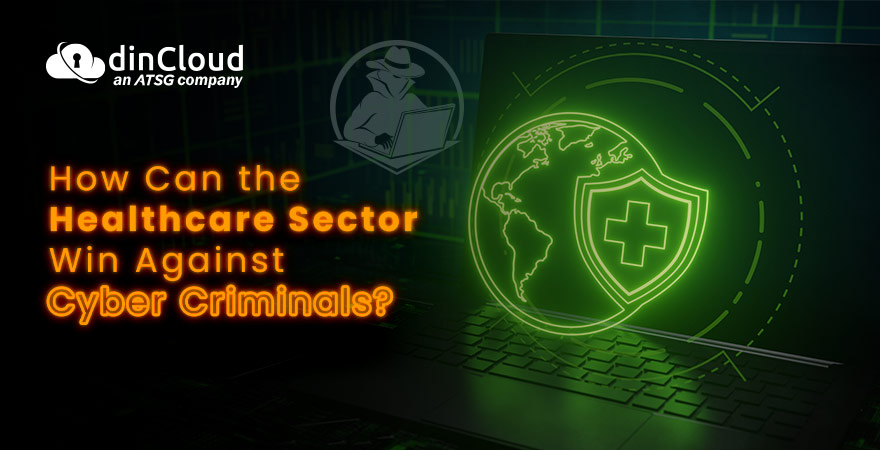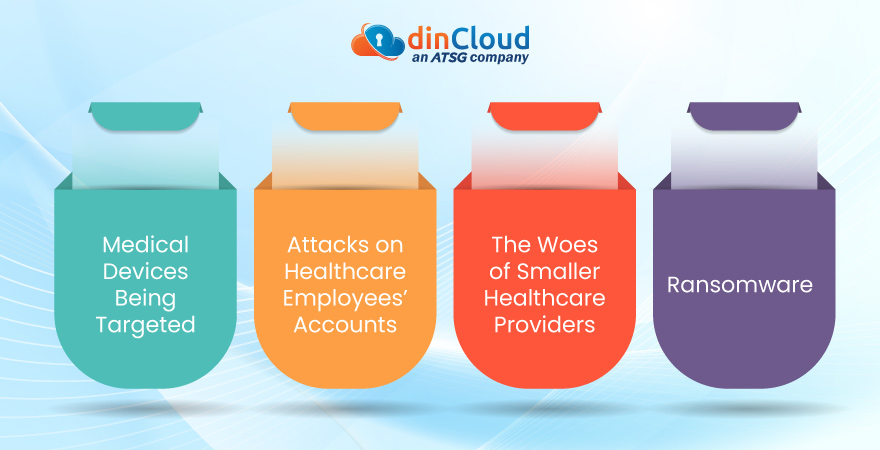Various cybersecurity statistics tell us that no enterprise is immune to cyber-attacks. This painful reality has been made very clear by the series of cybersecurity incidents that have strongly impacted many industries, particularly the healthcare sector. Considering the rapid surge in data breaches, it is high time the healthcare sector “diagnoses and cures” the cybersecurity breaches that threaten their very existence.
In this post, we will first take a look at some of the cybersecurity woes that continue to pose serious challenges for the Healthcare sector. Later on, we proposed some solutions that can help the healthcare sector mitigate and eliminate the impact of cybersecurity attacks.

The Healthcare Sector and Cybersecurity Challenges
Current market statistics and research present a daunting picture of how cyber miscreants have continued to target healthcare as a sector. This is reflected in the 2022 IBM report, which positioned the healthcare industry as the 6th most targeted sector by cyber criminals. Initially, we have listed some cybersecurity challenges that are being faced by healthcare organizations globally.

1. Medical Devices Being Targeted
The security of medical devices has been a major concern for the healthcare sector for quite some time now. Hacking a system is bad, but hacking a medical device can have devastating consequences. A major reason why cyber criminals can easily target medical devices is that most of the healthcare sector still works with legacy, traditional medical devices that lack built-in security features.
The rapid surge in the Internet of Things (IoT) medical devices has added to the worries of tech executives because around 53% of these devices are vulnerable to security threats. They could easily be exploited by hackers, and this could end up endangering patient lives. These devices can include anything, from MRI scanners to internet-enabled medical devices, such as specialized pumps alongside patient beds.
2. Attacks on Healthcare Employees’ Accounts
In order to keep up with the current digitalized world, healthcare employees require access to various applications and IT resources. For this reason, they create their own accounts, which are mostly targeted by bad actors. In case an account gets compromised, cybercriminals get access to a lot of sensitive and confidential digital resources via that account.
A wide range of malicious activities, such as brute force attacks and phishing activities, trick employees and they end up disclosing their account credentials. These stolen credentials are then exploited by cybercriminals, and sometimes even sold on the dark web.
3. The Woes of Smaller Healthcare Providers
It is often perceived that smaller healthcare providers, such as an independent dermatologist or a dental clinic, will have lesser cybersecurity protocols, as compared to the bigger entities. This has caused a lot of cyber attacks and data breach attempts to be directed toward smaller healthcare organizations.
Another reason for the sudden rise in cyberattacks on smaller, local healthcare companies is that they tend to attract lesser media attention and sensationalism. This way, a lot of these hackers get away with such notorious crimes, without garnering too much “public attention and wrath”.
4. Ransomware
Ransomware attacks have continued to give headaches to the security leaders of the healthcare sector, and it seems as if they are here to stay. This is because the importance and urgency of medical as well as healthcare records being at risk are usually so high, that most of the affected healthcare providers end up paying the demanded ransom amount.
Notorious threat actors have unfortunately adopted triple extortion maneuvers. First, they encrypt the targeted organization’s data, then blackmail hospitals about leaking or selling confidential patient data for the world to see.
Sadly, the story does not end here. The fact that the healthcare sector cannot afford prolonged downtimes in its mission-critical infrastructure is fully exploited by cyber miscreants.
They threaten to infiltrate their websites with Distributed Denial of Service (DDoS) attacks. Only proactive cybersecurity measures can minimize the devastating impact of these attacks, and help the healthcare industry to get back on track.
Preventions Against Cyber Attacks
There are certain measures that healthcare providers must adopt to diminish the harmful impact of cyber security incidents. The first and foremost thing would be to commence this cybersecurity journey, way before hackers even set their eyes on your healthcare organization’s IT infrastructure.
The healthcare sector can drastically reduce the likelihood of these malicious cybersecurity breaches, by adopting the following security measures.
-
- Almost all global tech leaders, including the USA, have accorded top priority to the protection of their healthcare systems. This manifested in the form of a bill being passed by the U.S Department of Health, in collaboration with the Cybersecurity and Infrastructure Security Agency (CISA). The healthcare sector can seek guidance from this bill, about ways to reduce these attacks through market research, implementing the various recommendations, and rigorous training.
-
- Healthcare personnel can also seek guidance from the Food and Drug Administration (FDA) Medical Device Cybersecurity Guidelines. This can be a complete guide regarding ways to protect various IoT medical devices, whose numbers are increasing by the day.
-
- The adoption of Zero Trust Architecture has done wonders in bolstering the cyber security posture of many sectors. Therefore, the healthcare sector should also adopt them in true letter and spirit. Only the context and identity of users will determine whether access to digital assets should be provided or otherwise. This will reduce the chances of cyberattacks, and also mitigate the adverse impact of a breach if at all it does happen.
- Small to medium-sized enterprises (SME) in the healthcare sector can outsource their security operations as well. Cybersecurity professionals, which specialize in this field, will be better able to mitigate the dangerous repercussions of cyberattacks.
The Compliant Solutions of Cloud Service Providers (CSP)
By engaging with reliable CSPs, like dinCloud, you will get highly secure Cloud Computing solutions that comply with some of the highest prescribed international standards for the healthcare sector.
By leveraging the flexible Cloud infrastructure of a specialized service provider like dinCloud, a healthcare organization will not be restricted by location or device. Healthcare professionals will be able to seamlessly manage their back-office activities, by leveraging scalable and secure cloud platforms.
A leading Cloud Service Provider (CSP), such as dinCloud, maintains cybersecurity as a top priority, with a multi-layered approach to maximize the protection against present-day cyber security threats.
Conclusion
It is unfortunate that we live in an era where we have to make peace with the fact that cybersecurity attacks are inevitable. No organization that has a digital presence can avoid them for a long period of time.
The healthcare sector has been on the “hit list” of nefarious hackers for a very long. However, the fight between cyber criminals and the healthcare industry can be won by the latter, if they implement strong cybersecurity controls and adopt a cultural shift of adopting cybersecurity best practices.


